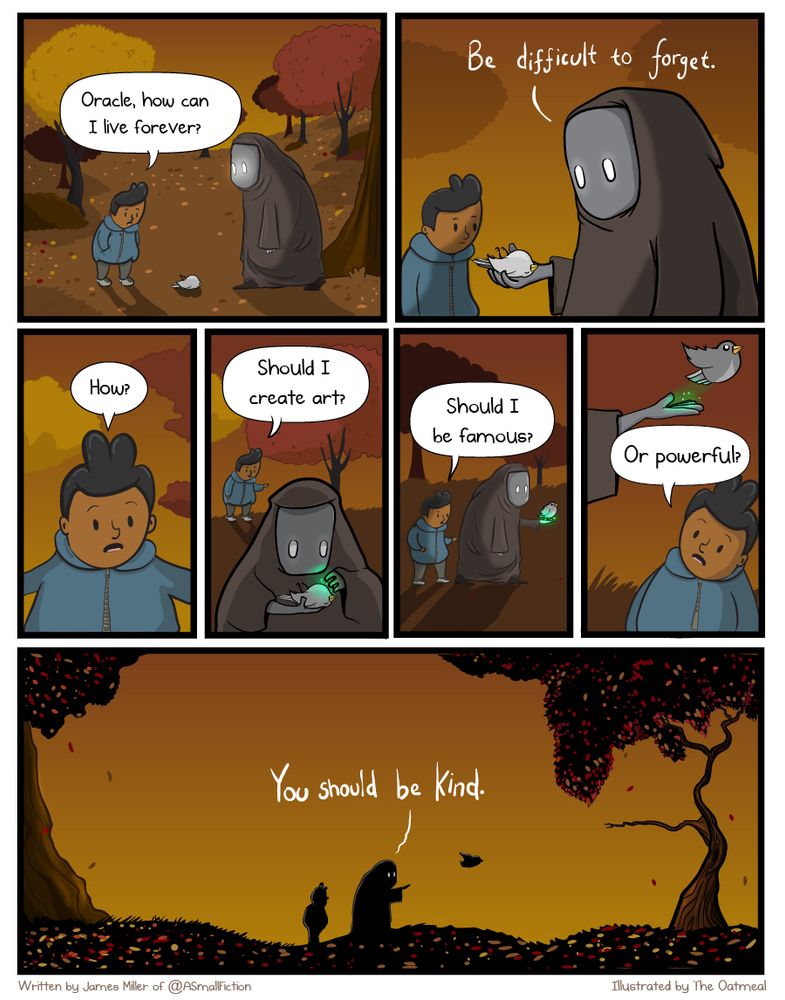Let me know if you cannot access the paper at the link below and I can send an accessible version :)
10.02.2026 08:38 — 👍 0 🔁 0 💬 0 📌 0
The biggest gains went to smaller, less Japan-exposed firms, and especially when the underlying inventions were of high quality.
10.02.2026 08:38 — 👍 0 🔁 0 💬 1 📌 0
We exploit a change in US patent law that made Japanese patent filings available in English much earlier, then track how quickly US inventors start building on that knowledge (via patent citations).
Language barriers accounted for almost half(!) the delay in uptake pre-change.
10.02.2026 08:38 — 👍 0 🔁 0 💬 1 📌 0

Economics of Ideas, Science, and Innovation Online PhD Short Course | Institute for Progress
Are you a PhD student interested in the economics of innovation? The Economics of Ideas, Science, and Innovation Online short course, hosted by IFP, is back for the third time! ifp.org/economics-of...
03.01.2026 22:52 — 👍 11 🔁 5 💬 1 📌 0
If you want a silver lining, the lead author on that paper is a Wellingtonian
25.11.2025 11:25 — 👍 0 🔁 0 💬 1 📌 0
The flow of information between research and policy is not a one-way street, it is a constant dialogue 🧪🧵
11.11.2025 21:23 — 👍 6 🔁 3 💬 1 📌 0
Indeed - I love this talk, but "we" is doing a lot of heavy lifting here!
08.10.2025 10:39 — 👍 1 🔁 0 💬 0 📌 0

Fewer Marsden Fund grants after government cuts
A major research fund has been forced to slash its grant allocation by more than $20 million next year.
More cuts to the Marsden Fund. This time $20 million from the annual budget cut starting next year. This is on top of previous cuts by this government. They are trying to skip the 'priming the pump' step of public research as a driver of the economy. How well that is going to work?
#NZPOL
06.09.2025 20:48 — 👍 45 🔁 24 💬 5 📌 8

A meme from Breaking Bad with Jesse saying "New Zealand. That's where they made Lord of the Rings".
Want to come to New Zealand this summer? The call for abstracts for the Capital City Complex Systems Symposium 2026 is now open: forms.gle/g22s2dR85oFq... 🧪
29.08.2025 03:58 — 👍 12 🔁 7 💬 0 📌 0
I see the ghouls are fretting about higher taxes making rich people leave the country - the dreaded 'capital flight' 😱.
I mean where do you even start with this crap? Well, not by arguing about estimates of how many millionaries we'll lose. Let's rehearse some lines... [1/n]
18.05.2025 07:46 — 👍 188 🔁 52 💬 11 📌 3
The 3M ones are available now 🙂
12.04.2025 12:28 — 👍 1 🔁 0 💬 0 📌 0
The IP component of the incoming reforms has gone largely without comment; however, the idea that giving a larger share of IP to scientists will incentivise commercialisation really shows how little this government understands the motivations of those who produce public goods.
27.01.2025 05:19 — 👍 2 🔁 0 💬 0 📌 0

Something to keep in mind for 2025
Written by James Miller of A Small Fiction
01.01.2025 18:12 — 👍 18057 🔁 3684 💬 137 📌 181
The competition dynamics between strains is super interesting! Out of interest, why is the wastewater data so noisy? I would have expected more homogeniety, but I suppose this depends on the point of the treatment process at which the measurement is taken?
20.12.2024 10:10 — 👍 0 🔁 0 💬 0 📌 0
I know economists love concise paper titles, but this is getting a little ridiculous...
20.12.2024 10:04 — 👍 0 🔁 0 💬 0 📌 0
If you think of stock markets as prediction markets, then these papers might be of interest:
doi.org/10.1093/qje/...
doi.org/10.3386/w33056
15.12.2024 02:09 — 👍 1 🔁 0 💬 0 📌 0
Observing and calculating economic benefit is basically impossible even in the most clear cut of cases. Treating research funding as an investment in the financial sense is setting our science system up for failure and will likely be used as justification for further cuts.
bsky.app/profile/kyle...
05.12.2024 21:43 — 👍 4 🔁 0 💬 0 📌 0
Finally, staying in my lane, others have much more informed understandings of impact measurement in the social sciences and humanities, and I defer to those researchers. (Though I note that their social impact is often MORE measurable and timely than in the hard sciences). \thread
05.12.2024 03:41 — 👍 4 🔁 0 💬 1 📌 0
(Side note: I am particularly concerned for environmental research of all kinds. What are the contributions to economic growth of biodiversity or better water quality? If the funder isn't convinced by your economic argument, the pool of funding just got a lot smaller.)
05.12.2024 03:41 — 👍 7 🔁 0 💬 1 📌 0
In sum, and ironically, if we want to quantify the economic benefits of research, we need to do a hell of a lot more social science in that direction. Measuring the societal outcomes of research is REALLY COMPLEX, even in the most simplistic version of research progression in the hard sciences.
05.12.2024 03:41 — 👍 8 🔁 2 💬 1 📌 0
Many of these questions are impossible to answer definitively and these are also a small subset of important questions that need answering before even attempting to measure an ROI in good faith.
05.12.2024 03:41 — 👍 3 🔁 0 💬 1 📌 0
How do we account for intangible effects, such as when a researcher’s work inspires someone to pursue a STEM career? What is the value of maintaining an active and engaged research workforce?
05.12.2024 03:41 — 👍 3 🔁 0 💬 1 📌 0
After all of this, we then have to ask: how long do we wait before assessing these impacts? Is a 10-20 year wait for social impact politically acceptable?
05.12.2024 03:41 — 👍 3 🔁 0 💬 1 📌 0
5) Say the product improves the well-being of those that can access it - how do we measure the change in well-being? If it is a medical product, it may extend lives - do we put an economic value on this outcome? What if only the wealthy can access it?
05.12.2024 03:41 — 👍 4 🔁 0 💬 1 📌 0
4) (cont'd) Who funded the commercialisation process, and does it matter? How should we split the total impact between the initial grant and later investments? What implications does this have for ROI calculations?
05.12.2024 03:41 — 👍 2 🔁 0 💬 1 📌 0
4) The private sector may also integrate the research into their products, or even license the patent - knowledge is 'non-rival'. How do we measure this impact? Are profits of foreign firms included in economic benefit, or only those of domestic firms?
05.12.2024 03:41 — 👍 2 🔁 0 💬 1 📌 0
Assistant Professor at the Department of Economics, Copenhagen Business School
Research interests: Industrial Organization, Intellectual Property Rights and Finance
http://www.marekgiebel.com/
Professor of Economics of Innovation at EPFL. Sharing news, research findings, and professional opportunities in Science, Technology, and Innovation Policy.
Economist @ZEW
Science, innovation, R&D policy
thscp.github.io
An editor at Research Policy & Small Business Economics
Prof at Waseda Business School, Tokyo
Physicist. Currently MSCA fellow at CNRS Marseille.
Dynamical systems and complex networks.
https://giuliacencetti.github.io
Ugly graphs, insights and outbursts. NZ.
Professor and Founding Director, AIHI; Past President, ISQua. Always naturally curious blog on Substack. Promoting better healthcare in a green, clean, more equitable world.
econ prof. & development economist | jonashjort.com
Assistant prof in economics at the University of Toronto, research on cash transfers and evidence-based decision-making, J-PAL affiliate. https://evavivalt.com/
Professor of Politics and Public Policy, University of Stirling, UK. Past my best. Photo 11 years out of date.
https://paulcairney.wordpress.com/cv/
Law Prof and Co-Director, Berkeley Center for Law and Technology. linktr.ee/colleenchien
NO KINGS. NO FASCISTS. FUND SCIENCE.
Professor of Computer Science @ BioFrontiers Institute at University of Colorado, Boulder and External Faculty @ Santa Fe Institute
orcid: https://orcid.org/0000-0002-3529-8746
Scandinasian professor of network science & computational social science
Economic historian, studying creativity, science, and innovation, mom of 2 boys. Love running in the mountains, climbing, and singing.
Economist at HEC Paris
https://sites.google.com/site/abergeaudeco
Senior research fellow (adjunct), Victoria University. Words at the Post, Spinoff, Guardian. @TEDTalks '3 Ways to Upgrade Democracy'. Author on tackling economic inequality and creating democratic renewal. Mostly broadcasting here.
Prof at @StanfordLaw.bsky.social, Senior Fellow at @SIEPR.bsky.social, physics PhD. Researching IP & innovation. Coauthor of free patent casebook: patentcasebook.org
Faculty member at the University of Hong Kong Faculty of Law. Researching/Teaching Innovation Policy, IP Law, and Computational Legal Studies.







